Ensuring Responsible Disposal for a Healthier Environment

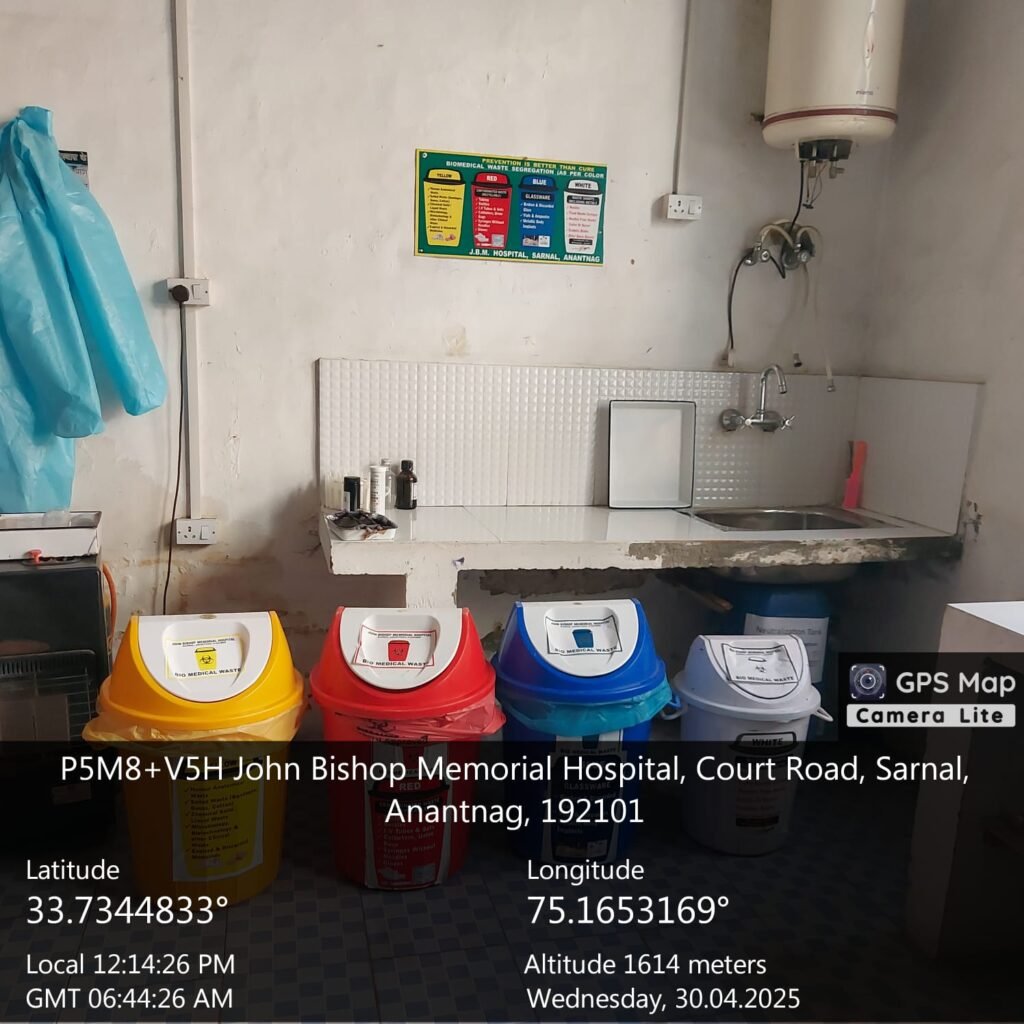
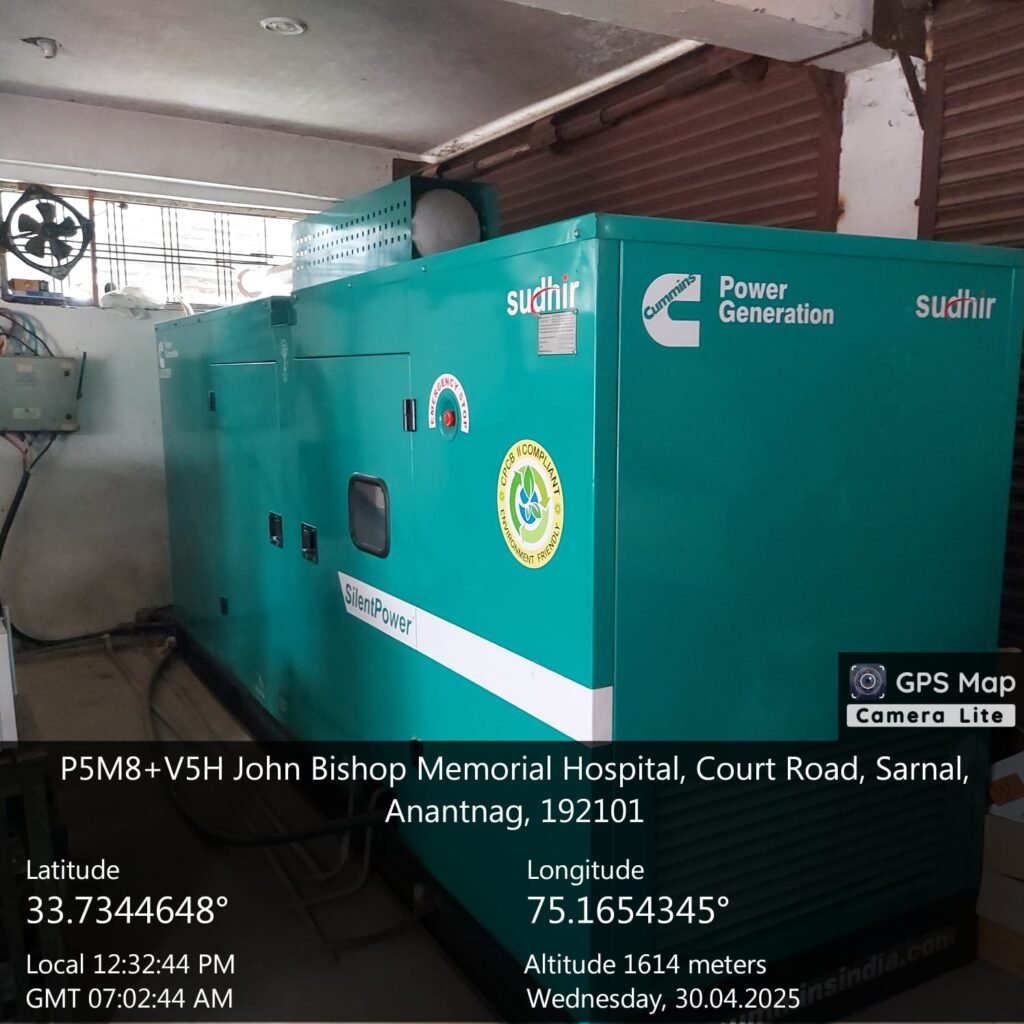
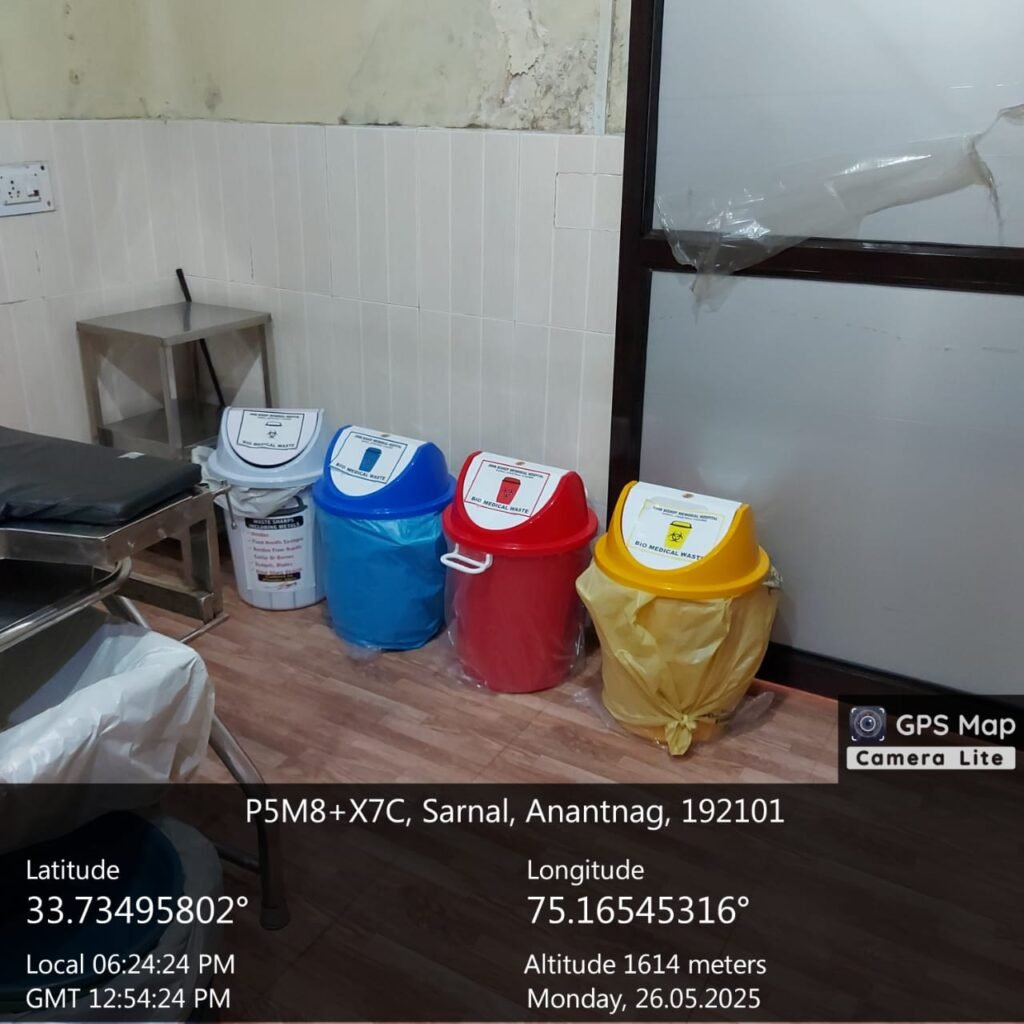
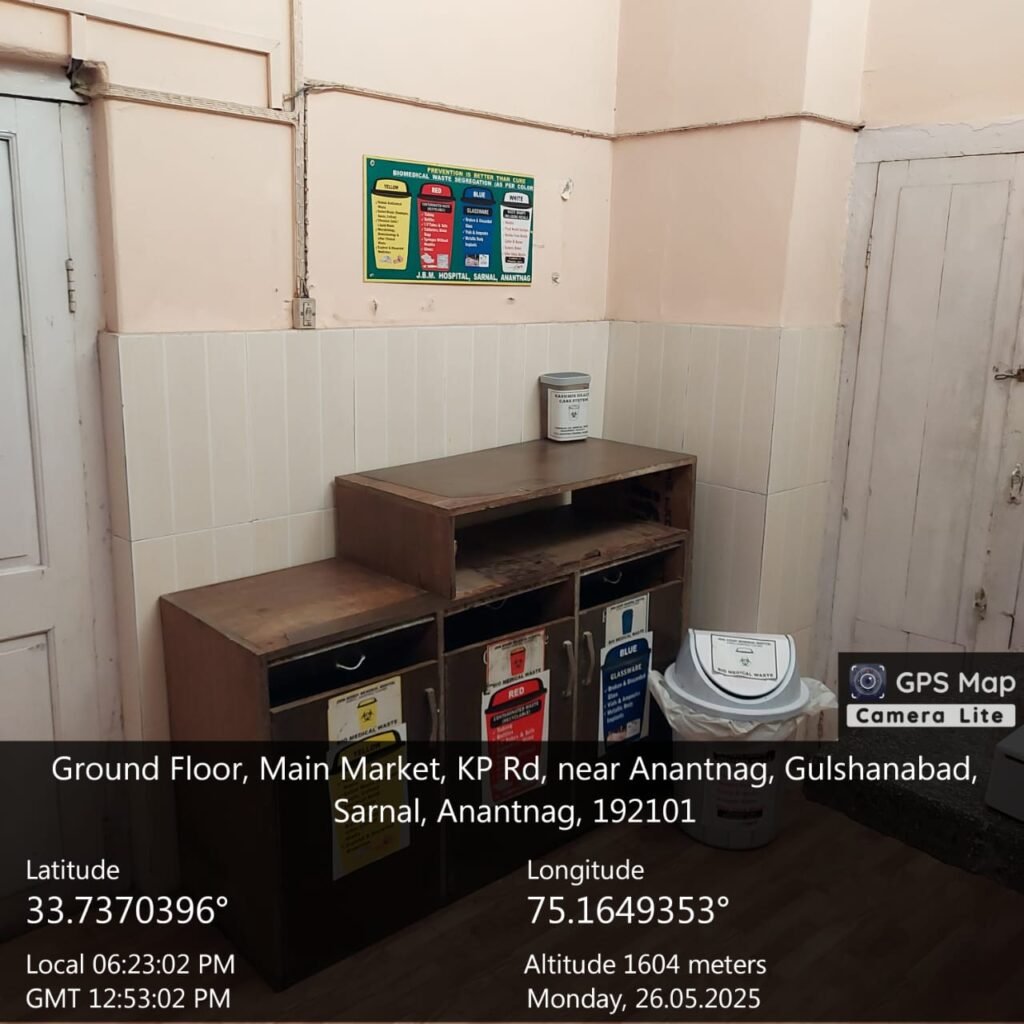
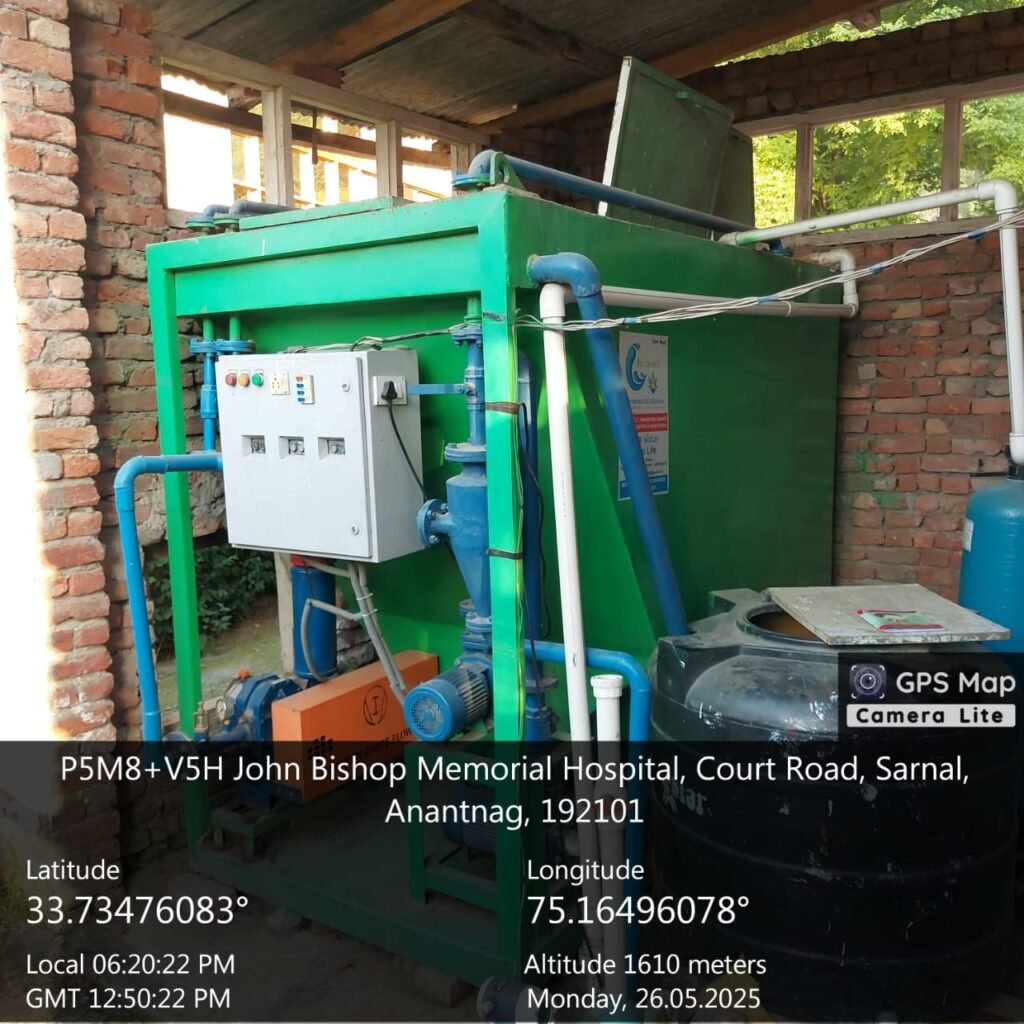
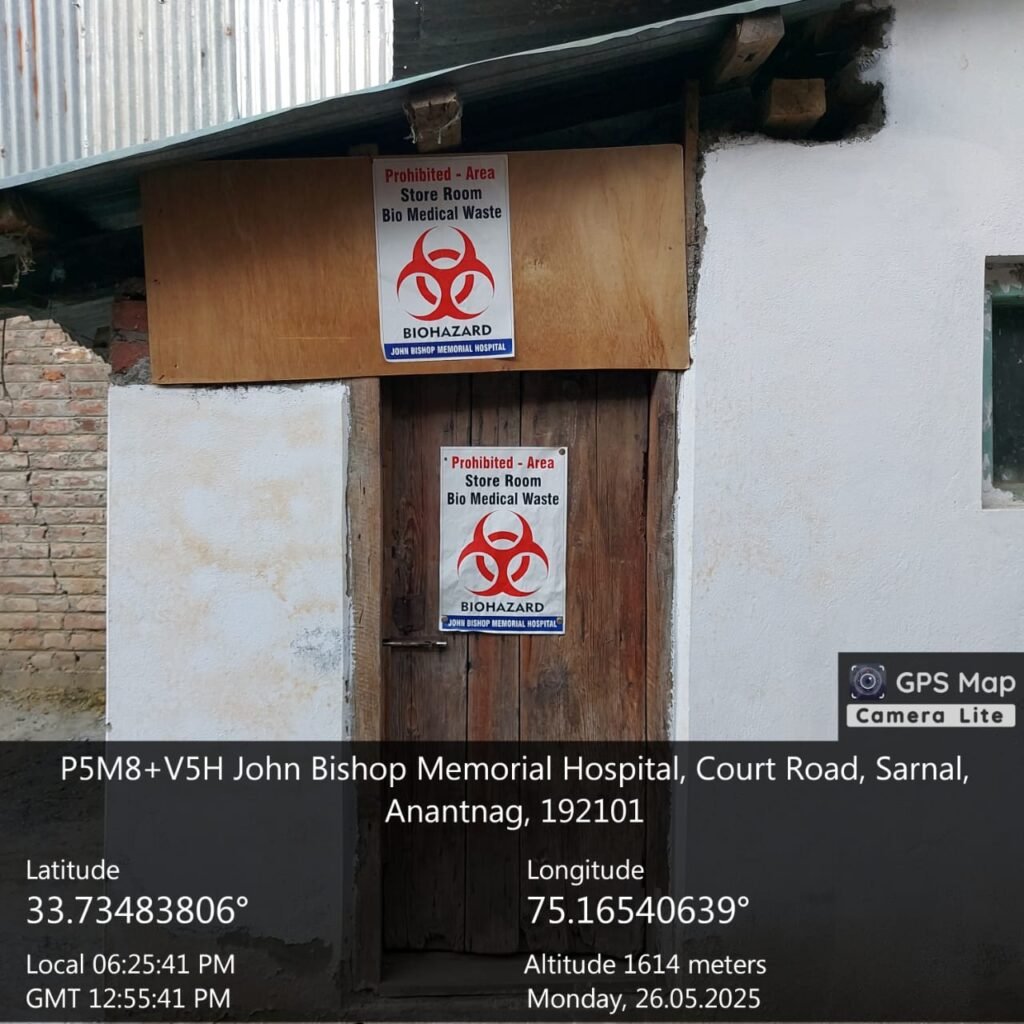
Bio-Medical Waste Management at John Bishop Memorial Hospital, Anantnag
Introduction
John Bishop Memorial Hospital, Anantnag, is committed to maintaining the highest standards of healthcare while ensuring environmental safety through responsible bio-medical waste management. We adhere to national and international guidelines for the collection, segregation, transportation, treatment, and disposal of medical waste. Our objective is to minimize environmental hazards, protect public health, and ensure compliance with all regulatory requirements.
Categories of Bio-Medical Waste
In accordance with the Bio-Medical Waste Management Rules, we categorize medical waste into the following types:
- Infectious Waste – Materials contaminated with blood or other bodily fluids, including bandages, gauze, and surgical gloves.
- Pathological Waste – Human tissues, organs, and body parts removed during surgery or autopsy.
- Sharps Waste – Needles, scalpels, broken glass, and other sharp instruments that pose a puncture risk.
- Pharmaceutical Waste – Expired or unused medicines, vaccines, and chemicals.
- Chemical Waste – Disinfectants, laboratory reagents, and cleaning agents.
- Radioactive Waste – Materials contaminated with radioactive substances from diagnostic or therapeutic procedures.
- General Waste – Non-hazardous waste such as food waste and paper products.
Waste Segregation & Collection
To ensure safe disposal, waste is segregated at the source using color-coded bins as per regulatory guidelines:
- Yellow Bin – Human anatomical waste, infected materials, and soiled waste.
- Red Bin – Contaminated recyclable items like plastic gloves, syringes (without needles), and IV tubes.
- Blue Bin – Glassware, metallic body implants, and broken ampoules.
- White Bin – Sharps waste like needles, scalpels, and blades.
- Black Bin – General non-hazardous waste.
Storage & Transportation
- Bio-medical waste is stored in designated areas with proper labeling.
- Waste is transported in leak-proof, covered, and labeled containers to prevent contamination.
- Special care is taken to handle infectious and sharps waste safely.
Treatment & Disposal Methods
At John Bishop Memorial Hospital, we employ the following disposal methods in collaboration with authorized waste treatment facilities:
- Incineration – Used for pathological waste, human tissues, and pharmaceuticals.
- Autoclaving – Sterilization of sharps, surgical instruments, and infectious waste.
- Microwaving – Disinfection of non-sharp infectious waste before disposal.
- Chemical Disinfection – Used for liquid waste, laboratory chemicals, and contaminated materials.
- Deep Burial – Safe disposal of human anatomical waste where incineration is not feasible.
- Recycling – Plastics and glass are disinfected and sent for recycling through authorized vendors.
Compliance & Regulations
John Bishop Memorial Hospital strictly follows:
- Bio-Medical Waste Management Rules, 2016 (India)
- Environmental Protection Act, 1986
- World Health Organization (WHO) Guidelines on Healthcare Waste Management
We conduct regular audits and training programs to ensure full compliance with these standards.
Staff Training & Awareness
To ensure effective waste management, we:
- Conduct regular training sessions for doctors, nurses, and sanitation staff.
- Provide guidelines for safe handling and disposal of bio-medical waste.
- Monitor waste segregation and collection practices.
Commitment to Environmental Safety
John Bishop Memorial Hospital is dedicated to reducing the environmental impact of medical waste by:
- Implementing sustainable disposal methods.
- Reducing waste generation through efficient hospital practices.
- Encouraging responsible waste disposal among staff and patients.
By following strict bio-medical waste management protocols, we aim to create a safer healthcare environment for our patients, staff, and the community.
Conclusion
Proper bio-medical waste management is essential for maintaining hygiene and preventing the spread of infections. At John Bishop Memorial Hospital, we take this responsibility seriously and strive to implement the best practices in waste management to ensure a cleaner, safer, and healthier Anantnag.

